#napoleonic
Text

Robe sword and scabbard 1802-03
In 1799 a new system of government, led by three Consuls, was introduced in France. Napoleon was elected First Consul. A sword of this pattern was provided to each of them, although this one is of a later date and must have been a replacement for the original. It was acquired by George IV with a certificate swearing that it had belonged to Napoleon himself.
#sword#swords#scabbard#scabbards#windsor castle#versailles#napoleonic#napoléon#napoleon#napoleon bonaparte#napoléon bonaparte#france#french
259 notes
·
View notes
Text
Citizen Cooks in the Age of Napoleon
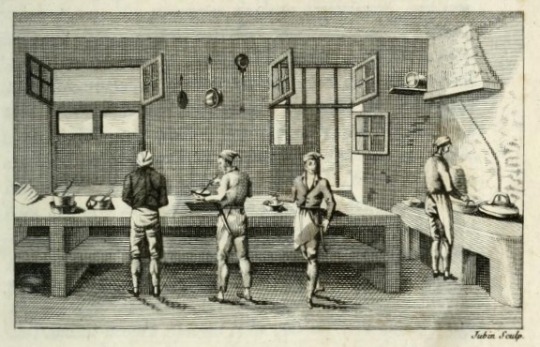
Excerpt about the role of cooks in France after the abolition of culinary guilds, and how they navigated a world which demanded for them to find new ways to stay relevant and prosperous. From Defining Culinary Authority: The Transformation of Cooking in France, 1650-1830 by Jennifer J. Davis:
French cooks sought new sites upon which to rebuild the authority of culinary labor. Throughout the early nineteenth century cooks increasingly adopted scientific terms to demonstrate their reliability and profound knowledge of the culinary arts. Such language communicated the author's education and distinction, just as an appeal to an elite patron had done in the 1660s and referral to a cook's professional expertise had done in the 1760s. The rhetoric and institutions of scientific knowledge also provided a means of distinguishing men's work from women's in the post-revolutionary era. During the early nineteenth century, cooks' claims to scientifically valuable savoir-faire rested on three crucial points of culinary innovation: food preservation, the improved production of bouillon, and gelatin extraction.
As these processes left the realm of traditional knowledge and became sites of scientific inquiry by tradespeople and amateurs alike, cooks sought to maintain authority in this arena by including scientific terms and theories in cookbooks, advertisements, and government petitions.
Two factors encouraged cooks' claims to scientific knowledge during this era. First, when Napoleon Bonaparte took the reins of government as first consul in 1799 and established himself as emperor in 1804, he raised medical doctors and academic scientists, Idéologues, to positions of political prominence. From these posts, the Idéologues subsidized experiments and inventions deemed useful to the nation and encouraged the popularization of science in the public sphere through state sponsorship of exhibitions and print forums. The Idéologues particularly supported research related to food preparation and preservation that might benefit France's armies and navies, with obvious benefits for professional cooks. Many cooks presented their particular techniques to the government during this time, seeking both financial recompense and public acclaim. Second, a voluntary association closely allied with the Idéologues' vision, the Société d'encouragement pour l'industrie nationale (Society for the Encouragement of National Industry), provided a forum in which formally trained scientists, politicians, merchants, artisans, and curious educated men might unite to address questions that inhibited French science and industry.
Together, these men sought to develop a more coherent program for industrial advancement than any one group could achieve independently. The society explicitly sought to join scientific knowledge to artisanal practical expertise, recognizing that each group had strengths that would benefit industrial development. This association invested heavily in three diffuse projects that eventually infused the most basic culinary processes with scientific awareness: new methods of food preservation to benefit the nation's armies and navies, new methods of stock preparation to sustain the nation's poor, and new methods of extracting gelatin from bones to improve hospital and military diets at little added expense.
#Illustration from L'art du Cuisinier by Antoine Beauvilliers (1814)#Defining Culinary Authority: The Transformation of Cooking in France 1650-1830#Jennifer J. Davis#David#citizen cooks#napoleon#napoleon bonaparte#napoleonic#napoleonic era#first french empire#french empire#19th century#french revolution#cooks#food#culinary history#france#1800s#history#french history#Antoine Beauvilliers#Beauvilliers#Society for the Encouragement of National Industry#Société d'encouragement pour l'industrie nationale
25 notes
·
View notes
Text
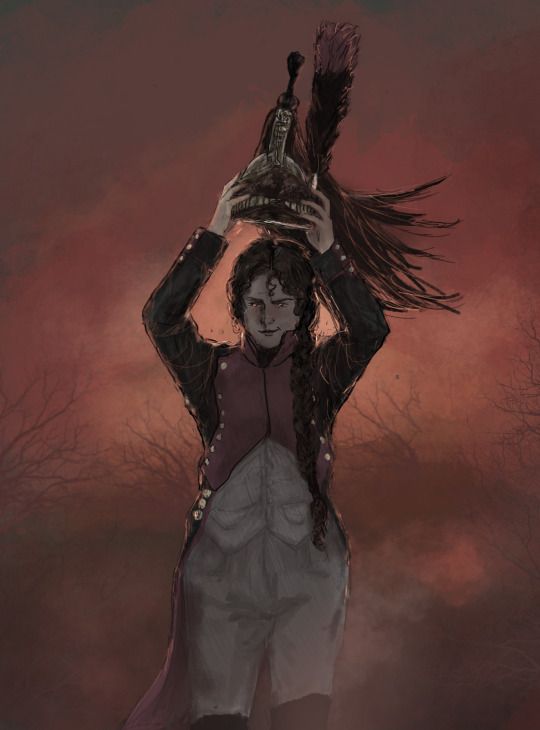
For International Women's Day — a portrait of a brave, invincible and independent woman who officially served in the army (both revolutionary and during the empire), who called Napoleon a "gypsy child", who was captured more than once, who adored her long hair, who once ate a delicious fried ram with Augereau (because of which she was late and was sent to the guardhouse), who organized a shelter for dogs during the war in Spain — the little dragoon "Sans-Gêne", Marie-Thérèse Figueur.
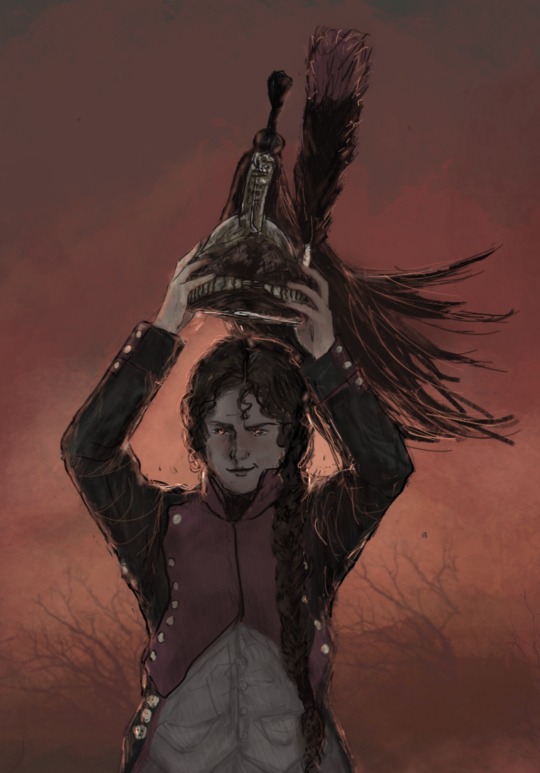
#history#french history#history art#napoleonic#therese figueur#madame sans gene#napoleon#napoleon bonaparte#french revolution
313 notes
·
View notes
Text
OKAY HEAR ME OUT:
All of these edgy science fiction / fantasy novels about overthrowing evil empires and then becoming the very thing that you sought to destroy and the main character ending up as bad as the regime they overthrew and all that, you know?
You could very easily make a dramatised version of the life of Napoleon Bonaparte, transplant it into generic fantasy evil empire world, change the names of the historical figures to fictional names, and all the tumblrinas would eat that up.
Picture this: Napoleon Our protagonist is born the second child in a large family on Corsica generic fantasy island, is sent to a military academy in France evil empire, and begins to rise through the ranks of the army. A revolution occurs, in which the French evil empire monarchy is overthrown, and our protagonist, a supporter of the revolution, fights for the revolutionary government against royalist uprisings and the first coalition other evil empires. Along the way, our protagonist becomes increasingly powerful, as well as being an absolute slut. After a series of military campaigns, our protagonist, seeing the corruption of the directory new evil government, stages a coup and becomes first consul generic fantasy leader. However, over the course of the book, our protagonist has acquired a huge ego and lost many morals, and ends up themself the emperor of France fantasy kingdom. "Morally grey" shenanigans ensue. (Of course, our protagonist would have many many love interests, such as Josephine de Beauharnais hot milf, Jean-Andoche Junot hot best friend, and Tsar Alexander I enemies-to-lovers-to-enemies-again.) (Main character would be characterised as being the most pathetic little person to ever exist who is frequently bullied for being quirky and not-like-other-girls)
#THIS POST IS 100% SILLY OKAY PLEASE DON'T TAKE ANYTHING I SAY SERIOUSLY#history#napoleon#napoleonic#napoleonic era#napoleon bonaparte#books#bookblr#fantasy#fantasy books#fantasy writing#writing#writeblr#literature#locked tomb#iron widow#baru cormorant#i'm sorry for this
715 notes
·
View notes
Text

The U.S. frigate United States capturing H.B.M. frigate Macedonian: fought, Octr. 25th. 1812 / lith. & pub. by N. Currier, c. 1835-1856 (LOC).
#polls#napoleonic#napoleonic wars#war of 1812#military history#great comet of 1812#charles dickens#george iv#regency era#regency#louisiana#us history#1810s#1812#age of sail#naval battle#who will win the ultimate 1812 showdown?
653 notes
·
View notes
Text
apparently napoleon hated murats mustache so much that he ordered it to be omitted from portraits. i think he was just a hater bc murats mustache looked fantastic
#napoleon#napoleon bonaparte#murat#joachim murat#napoleons marshals#napoleonic wars#napoleonic#history#rave art
176 notes
·
View notes
Text
something i made for lannes’s bday! sharing this here too!
#napoleonic wars#history art#history meme#napoleonic meme#napoleon's marshals#jean lannes#napoleonic#i made this under like two days i was rushing because i almost forgot it was lannes bday😭😭😭#I WAS SCRIBBLING AND COLORING AS IF MY LIFE DEPENDED ON IT LMFAOO
172 notes
·
View notes
Text
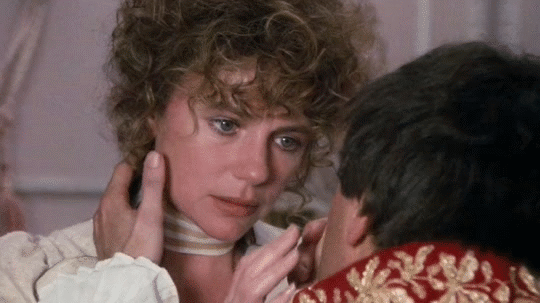

I have seen a resurge of interest in this miniseries since the release of Ridley Scott's disaster. There is an excellent version on youtube that you can watch.
This scene depicts a situation that did actually happen between Napoleon and Josephine. Josephine either faked a pregnancy or mistook a possible pregnancy to avoid having to travel to Italy during Napoleon's campaign in 1796. Eventually she was pushed/forced to visit Napoleon in Italy because Napoleon began to slack his military campaign out of worry/desperation for his wife. Of course it would become obvious that she wasn't in fact pregnant. This scene depicts Napoleon finding out about the 'miscarriage'.
Even though this miniseries is not that historically accurate, it does capture the character of Napoleon so much better than Ridley Scott's new film.
#napoleonic#napoleon bonaparte#napoleonic era#movie#napoleonic wars#napoleon and josephine#armand assante#jacqueline bisset
156 notes
·
View notes
Text

Oh, that sounds kinda weird but oka-



113 notes
·
View notes
Note
hello! i’m looking into adopted yet another 19th century man. i’ve owned several others, and am looking for something unique. are there any unique and peculiar breeds you recommend?
Sure! These heritage and unique 19th century men may not be for everyone, but I want them to get more love.
French soldier left behind on the field of battle during the 1870 Franco-Prussian War.
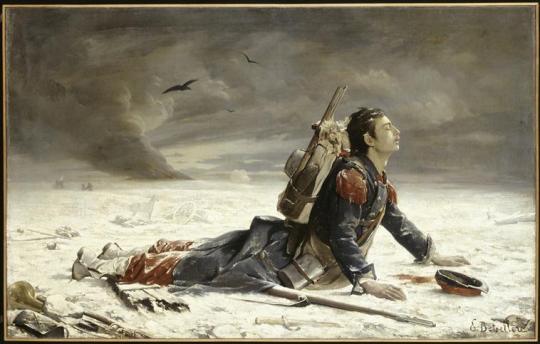
Poor sweetheart!! True story: the model for this 1872 painting, real French soldier Théodore Larran, met the artist Émile Betsellère many times because Betsellère was so touched by his story. Absolutely the type of 19th century man you want to rescue and love.
A jolly flatboatman.
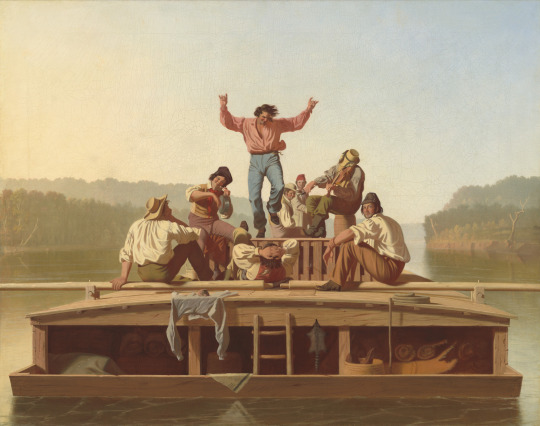
From The Jolly Flatboatmen by artist George Caleb Bingham, 1846.
A good 19th century man doesn't have to be wealthy or formal, as these charming working class fellows attest. Perfect for the aficionado of lively, active 19th century men.
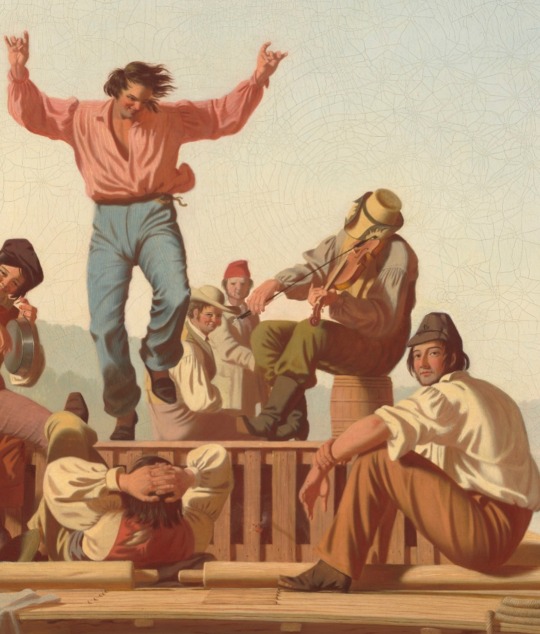
British Army 41st Regiment of Foot Soldier, c. 1800-1815.
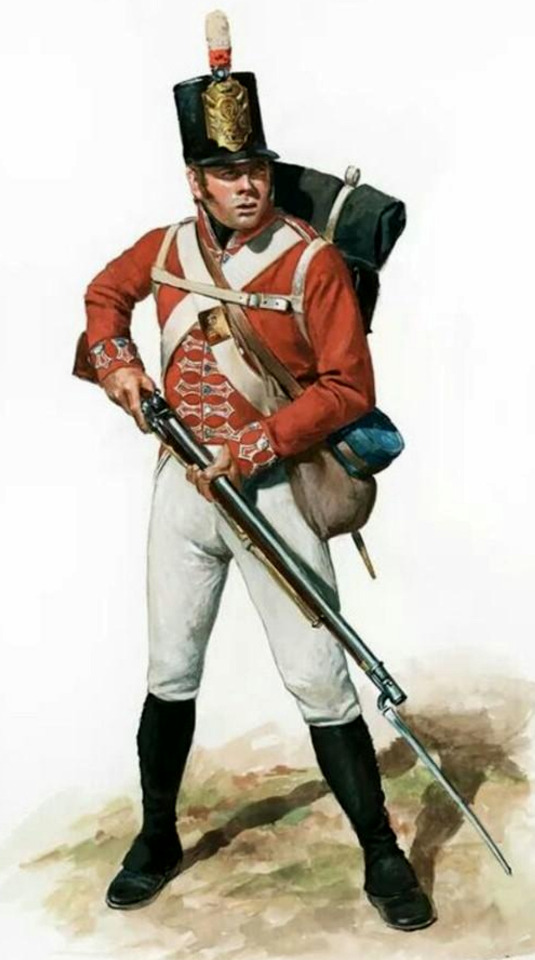
Who doesn't have "a passion for a scarlet coat," as Jonathan Swift phrased it! Your soldier needs a lot of exercise and structure, but he's not picky about his food or bedding. Comes with his own blanket and water bottle! He's a lover, he's a fighter, I recommend delousing him before you bring him into your home.
Cossack Trowsers King.
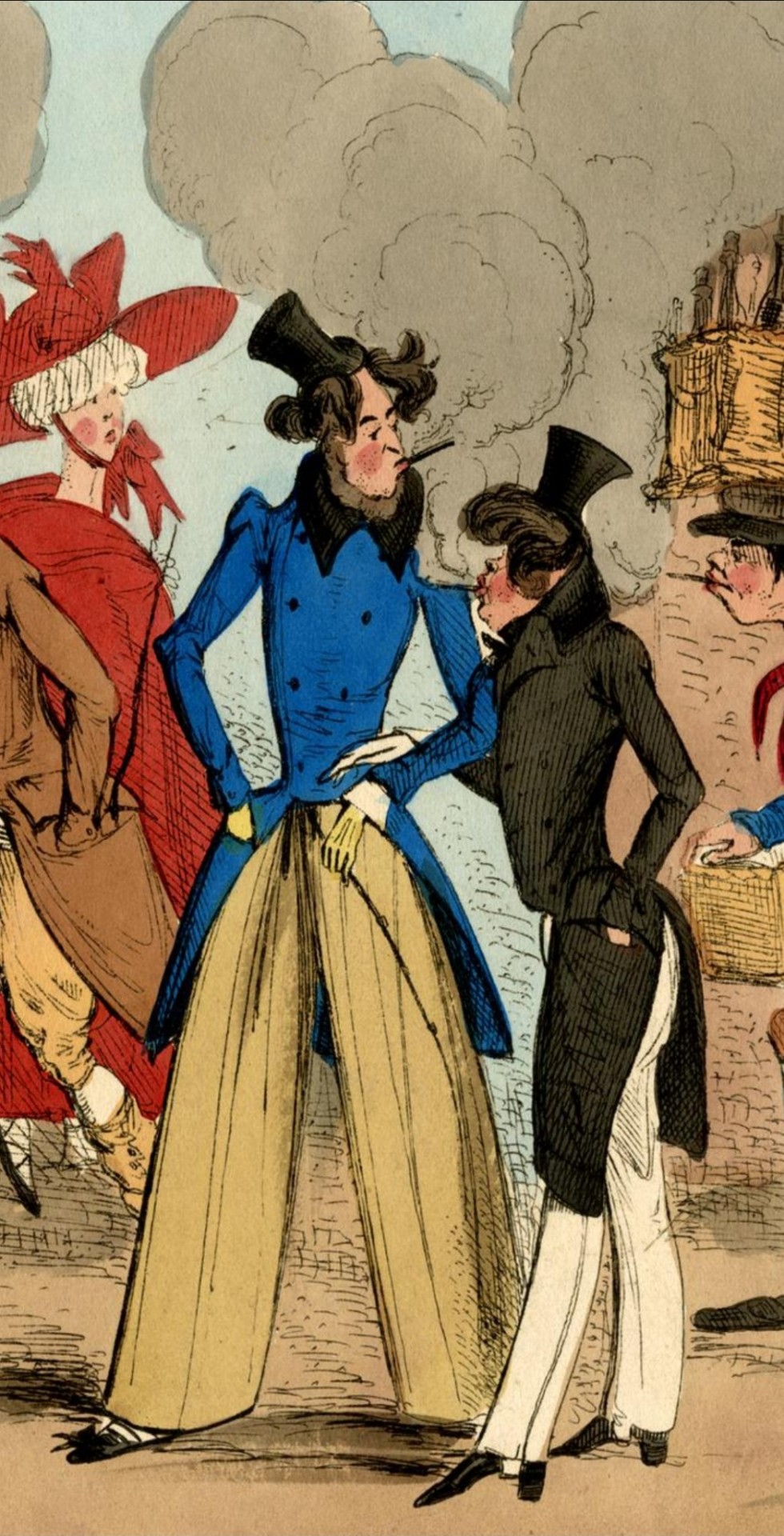
Strutting his stuff in 1827, he has an insouciant attitude and a bold, fashion-forward look. You may want to address the fact that he's also a major source of air pollution.
164 notes
·
View notes
Text
Russian blizzard

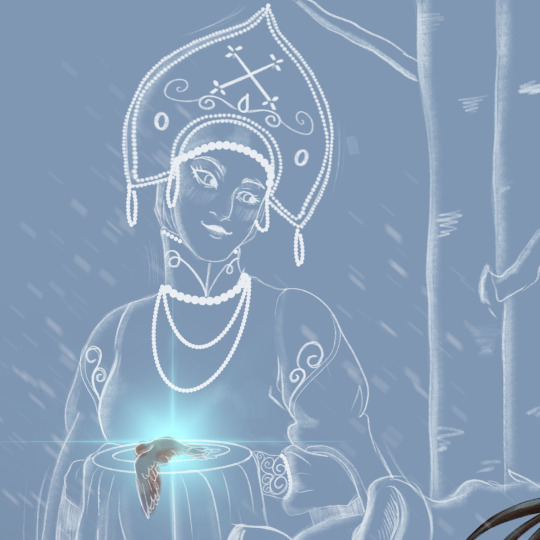
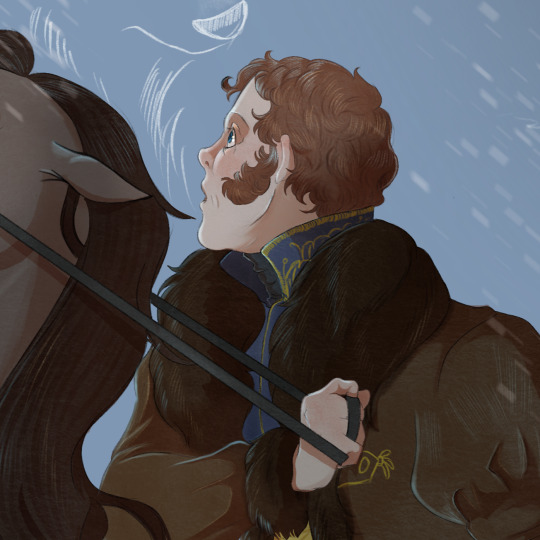
#history art#art#napoleonic#michel ney#marshal ney#19 century#french history#napoleonic art#napoleonic era#napoleonic marshals#marshalate#1812#i hate drawing horses
111 notes
·
View notes
Text

Lucien Bonaparte contemplating his mistress, Alexandrine de Bleschamp Jouberthon by Guillaume Guillon-Lethière
#lucien bonaparte#bonaparte#art#guillaume guillon lethière#alexandrine de bleschamp jouberthon#alexandrine de bleschamp#madame jouberthon#portrait#france#french#napoleonic#neoclassical#neoclassicism#europe#european#antiquity#antique#dress#venus#roman#greek#history#incense burner#sofa#chair#busts#romantic#romanticism
72 notes
·
View notes
Text
Napoleon and Nicolas Appert: The invention of canned food
“Although he [Napoleon] continued so far as possible the Revolutionary practice of having armies live off the land, he also did his best to develop an efficient commissariat. A famous part of his supply system was canned food, particularly meat, for the army. Nicholas Appert had started the food-canning industry in 1804, building a factory that employed fifty people. His method prescribed putting the food in glass jars, which were next carefully stoppered, and then cooked in boiling water for lengths of time varying with the type of food. The navy first used the canned food, with great success even on extended cruises. In 1810 the Minister of the Interior awarded Appert 12,000 francs on condition he make his process public.”
— Robert B. Holtman, The Napoleonic Revolution
The inventor of canning, Appert, deposited samples of his invention to the imperial government in 1809, specifically to the Society for the Encouragement of National Industry [Société d'Encouragement pour l'Industrie Nationale].
He published his findings in 1810, titled: Le livre de tous les ménages ou l'art de conserver pendant plusieurs années toutes les substances animales et végétales [English tr: The Art of Preserving All Kinds of Animal and Vegetable Substances For Several Years]. It was “a work published by the order of the French Minister of the Interior, on the report of the Board of Arts and Manufactures”.
For his discovery, the government paid him 12,000 francs and gave him free lodgings and a workshop in the Hospice des Quinze-Vingts. Every prefecture in the French Empire was supplied with a copy of his book, and the prefects were assigned the responsibility of disseminating the information widely. Two more editions were created under the empire, and another in 1831.
His factories were ransacked and destroyed during the invasions of France in 1814 and again in 1815. He was able to rebuild and won several gold medals from the Society for the Encouragement of National Industry and eventually became a member of the Society.
Appert is quoted as saying “I sacrificed everything for humanity, all my life”.
Additional Sources:
English translation of Appert’s 1810 publication
Nicolas Appert inventeur et humaniste, Jean-Paul Barbier, 1994 (Fondation Napoléon)
Collection A. Carême: Le conservateur 1842 (archive.org)
Defining Culinary Authority: The Transformation of Cooking in France, 1650-1830 by Jennifer J. Davis
#he’s my hero 😭#Nicolas Appert#Appert#Napoleon#napoleon bonaparte#canned food#Robert B. Holtman#Holtman#the Napoleonic revolution#napoleonic era#napoleonic#canned#canning#first french empire#french empire#19th century#history#Jean-Paul Barbier#Barbier#culinary history#french history#napoleonic wars#coalition wars#1800s#food#food history#gastronomy#Napoleonic reforms#reforms#Napoleon’s reforms
18 notes
·
View notes
Text
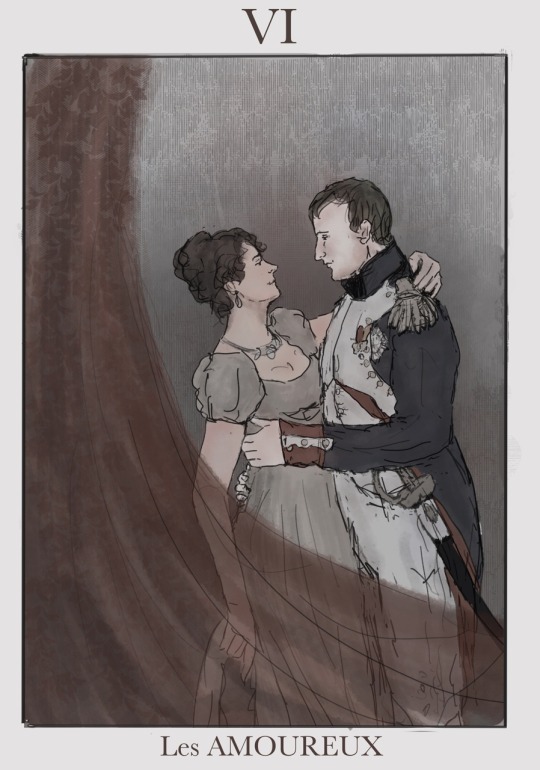
Napoleon, Josephine and the tarot cart:
VI The lovers
#history#french history#history art#napoleonic#napoleon#napoleon bonaparte#josephine beauharnais#napoleon and josephine#empress josephine#josephine bonaparte#art
148 notes
·
View notes
Text

Napoleon Bonaparte in the manga ‘The Rose Of Versailles’
#he only makes a very brief appearance but is certainly very cute and fancy#napoleon#napoleon bonaparte#the rose of versailles#manga#napoleonic#history#French Revolution#frev
143 notes
·
View notes
Text
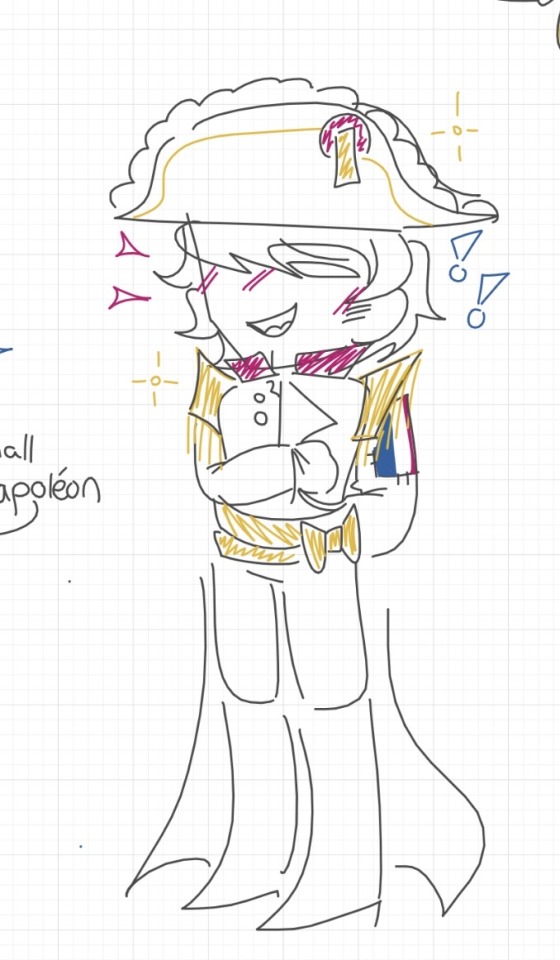




i think u guys can tell which one i had the most fun with (spoiler alert its murat)
ignore how i forgot my signature blush on murat
bonus under cut (i feel like its too cringe to put alongside the rest GSHGDSHG)

ignore the little gelatin and fries and tb doodle underneath....
#art#my art#ship art#napoleonic era#napoléon#napoleon#napoleonic#napoleon bonaparte#michel ney#marshal ney#marshal murat#marshal lannes#jean lannes#joachim murat#tsar alexander i#tsar alexander i of russia#alexander pavlovich#robespierre#maximilien robespierre#french empire#first french empire#france#history fanart#history fandom#history#french revolution#whiteboard fox#whiteboard
67 notes
·
View notes